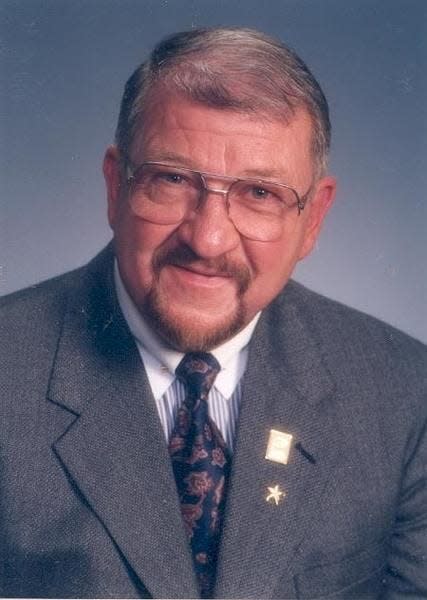Golarz: The less powerful are not targets. They are a gift from God.

For some, the disabled provoke discomfort. So they are often avoided. They’re sometimes seen as so crippled, sometimes so loud, shake so uncontrollably or drool. Thus some turn away, stare from a distance, or most tragically, they laugh.
I was 11 years old, sitting at a high school football game with my father and 8-year-old brother Joe. It was quite hot. The home team took a time out. Immediately the water boy, who was disabled by a club foot, went running out with the water bottles. In his enthusiasm, he tripped and fell. The water bottles went everywhere.
From many you could hear laughter. The boy, unable to stand, struggled to gather the bottles. The laughter continued. Finally, he knelt on the ground, covered his face with his hands and wept. My dad and I looked down at my younger brother Joe. Tears were streaming down his face as he said, “That poor kid, that poor kid.” I will never forget that moment. Joe clearly could feel the pain and unbearable hurt of the young lad on that field. I was so very proud of him.
One of my high school teaching assignments was a class of special education students. What I found was that they had one commonality: They knew when they were being made fun of or laughed at, and it was one of their greatest fears.
It’s hard to explain to those who have not had long experience with such young people the pain that they feel when experiencing such humiliation. If you have not held one of these innocent children as they wept in your arms, asking the question, “Why?” then you have been spared one of life’s most profound pains. If you have had this experience, you never forget it.
As an elementary school teacher, I taught seventh grade and assisted as the building’s assistant principal. I worked with all manner of childhood transgressions. It wasn’t often that I had to deal with a child who was laughing at, intimidating, or hurting a disabled child. But it did happen. In those cases I developed an extensive set of treatment strategies for the offender.
Over a period of years, I had only one child that I couldn’t get to.
He frightened me. It was as if he had no conscience and actually enjoyed hurting the weak and vulnerable. I ultimately referred him to the county psychiatric team. Their report was frightening and painful. The psychological team was not sure that they could help him.
During my lifetime, I have occasionally encountered adults like this boy. They are accurately described in Scott Peck’s book "The People of the Lie." They enjoy hurting the vulnerable and innocent and, if they are charismatic, they encourage your participation. The disabled and less powerful are for them an easy mark. They see no value or beauty even in an innocent, smiling child confined to a wheelchair.
Those we call the disabled are actually a gift from God. If we approach them with sincerity, they will sense such and warmly respond. If you are open to them with kindness, they will move to you and allow you to share in their innocence, for it is in that innocence that they live their lives.
Like very young children, they are God’s clear example for us as to where we need to be. Therefore, when you are with them, remember the words of our Lord: “Let the little children come to me and do not hinder them, for the Kingdom of Heaven belongs to such as these.” Matthew 19:14
In final days, all of us may be given an understanding as to who really were the disabled — most likely we will find that it was not them, rather it was some of us.
Raymond Golarz has authored or co-authored 12 books. He has keynoted criminal justice or education conferences throughout the United States and Canada. His website is RayGolarz.com. He resides in Bloomington.
This article originally appeared on The Herald-Times: Columnist writes differently abled people an example of who we need to be
